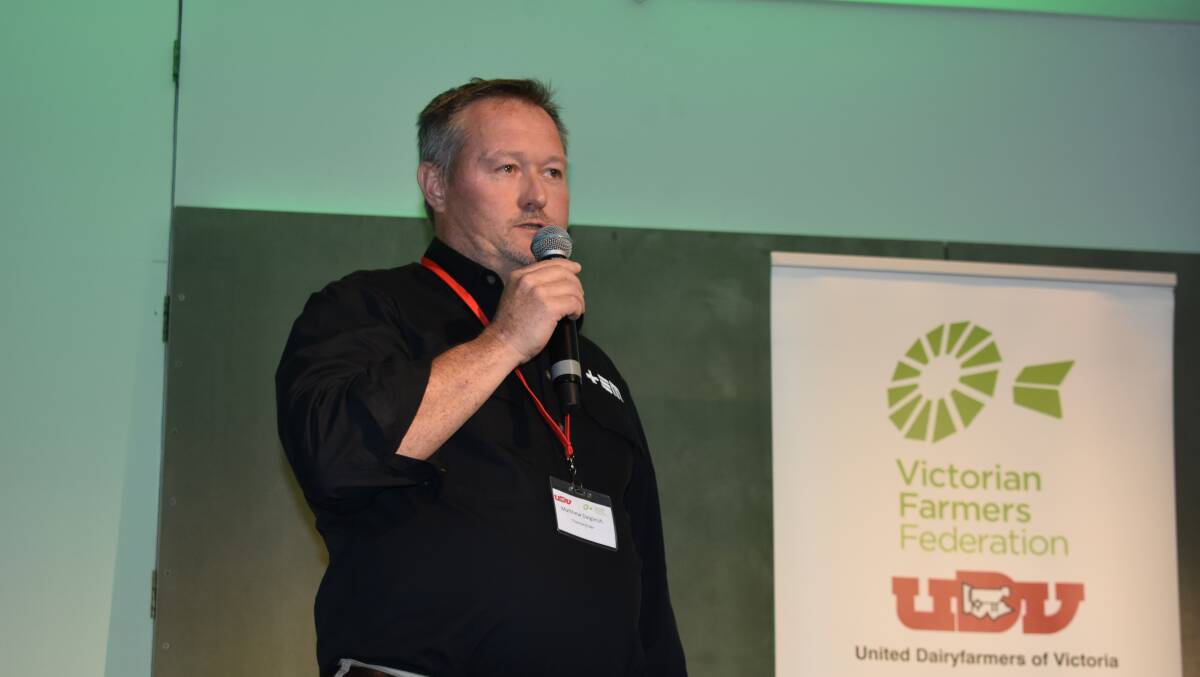
A leading University of Melbourne biosecurity expert says the risk of a foot and mouth disease incursion into Australia has increased only slightly, despite it being discovered in Bali.
Subscribe now for unlimited access.
or signup to continue reading
Centre of Excellence for Biosecurity Risk Analysis (CEBRA) deputy director Aaron Dodd said a panel of experts had assessed the risk of an incursion at 11.6 per cent in the next five years.
'When that work was first undertaken, in March 2021, the estimate of a FMD outbreak was 9 per cent, over the next five years," Dr Dodds said.
"With the recent detection of the virus in Indonesia, and subsequently Bali, that has increased to 11.6pc."
The centre supports governments in protecting Australia and New Zealand's agriculture, natural environments and human health from biosecurity threats.
Dr Dodd said a "structured expert judgement" exercise was used to determine the level of risk.
That involved a panel of experts, privately providing CEBRA with their estimate, or judgement, of the risk of entry of FMD to Australia.
Those estimates were then assessed and discussed.
"The information is then shared, to try and identify reasons for any divergence of opinion, after which a second round of private judgements are undertaken," he said.
"Those results are aggregated, which is what we get as the final estimate."
Dr Dodd said the global consensus was that FMD was most likely to be transferred by undeclared meat products, by passengers or in the mail.
He said Australia had been FMD free for 150 years, which had been achieved through a combination of x-ray machines, detector dogs and passenger screening for returning travellers.
Other controls, such as the ban on swill feeding pigs, were also employed to keep FMD out.
Dr Dodd said he believed the interest in FMD resulted in the coronavirus pandemic, which had changed perceptions about biosecurity.
"It [coronavirus] has exposed people to the types of controls we in the biosecurity sector are quite familiar with, but might not have been the types of things that would have been discussed at the family dinner table or around the BBQ," he said.
Livestock producers were justified in their concerns over the disease, he said.
"Those two things interacting with each other have probably resulted in the strongest level of interest in biosecurity in the 20 years that I have been working in the sector," he said.
Thomas Elder Markets analyst Andrew Whitelaw said the reports were "causing a lot of concern" among overseas investors.
"It's been overbaked, the situation has been overheated and its made people start to question the biosecurity of the country," Mr Whitelaw said.
He said some American investment banks had raised the issue with TEM.
"Do they want to invest in Australian agriculture if there is this risk of things falling over?," he said.
"We have heard of some traders who are trying to short agricultural equities.
"I think that's a massive risk, I don't think I would be doing that."
FMD had to get to a susceptible animal in Australia and the chances were very small, he said.
"We just need to be aware buyers of Australian meat can be confident there is no FMD here," Mr Whitelaw said.
"It's an unusual circumstance in that the market is going to interpret the situation based on insufficient information.
"We have been talking to a lot of investment banks, to quell those concerns."
Australia still had the strongest biosecurity systems in the world, he said.
"The fact we didn't get African Swine Fever is testament to that, the fact we haven't had FMD for more than 120 years is testament to that, despite it being in the neighbourhood a number of times."
Fellow TEM analyst Matt Dalgleish said the price reaction in livestock markets didn't reflect the actual assessed risk.
"Price reaction appears quick panic driven, than based on the risk profile," Mr Dalgleish said.
Mecardo analyst Adrian Ladaniwskyj said American advisors Steiner Investments had reported the "noise" about FMD risk in Australia had not been helpful to the industry.
"Talk among the trade there is that US buyers are also starting to get nervous about committing to Aussie products given the potential for supply to be brutally cut off," Mr Ladaniwskyj said.
"The upshot of this is that some US buyers may be exploring the viability of other options to ensure continuity of supply."















